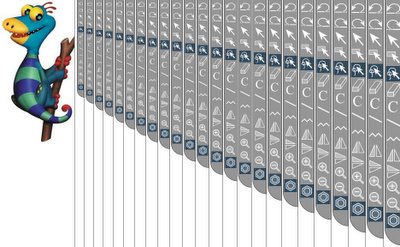
America is not going to be the sole superpower forever. That is a fact. In the long churn of history powers emerge and subside. About 800 years back China was the number one country on the planet, on the cutting edge of science. 500 years back Europeans were barbarians, busy in their little fights, sticks and stones. We have all heard of Genghis Khan. The 19th century Britain claimed the sun never set on its empire, those screwed up Brits. America dominated the 20th century. It is my analysis this 21st belongs to Asia. But I expect America to be the number one country for much of my working life. It is because it is a more polished democracy than India, and China is not even a democracy. The biggest reason is that America is the most diverse country on the planet. That is why Europe is no competition. Europe is decades behind America on diversity issues.
And America is not a white country. It might have been, and there still are residues. But the future offers to be colorful.
TIME.com Print Page: Top Stories -- The Coming of the Minority ...
TIME.com: Welcome to America's Most Diverse City -- Page 1
CBS News | Whites Now A Minority In California | March 30, 2001 09 ...
NPR : Whites Now the Minority in Texas
So when I say America will continue to be the leading country, I am not paying homage to the whites. I am paying homage to the idea of democracy. The best thing America can do to make sure it stays the number one country is to take race relations in this country to a whole new level. I guess it could also balance the budget. And it could work on the free wireless broadband idea. And the idea of free, ad-based books online. And Americans could lose weight.
But for me it is not superpower talk. It is not about the ego of nations and states. For me it is about the individual: individuals in America, and India, and China, and everywhere. For me it is not about the relative strength of nations, but the absolute living standard of people everywhere.
So if the per capita income in America is $40,000, I want it to go up. If the per capita income in China is $6000, I want it to go up. If the per capita income in India is $3000, I want it to go up.
If the income in the US goes from 40,000 to 60,000 in a decade, but in China it shoots from 6,000 to 15,000 in the same timespan, China is growing faster, and all the glory to it. Everyone should be happy: more Chinese are rising out of barebones poverty.
There are people on the left and the right in America who sound alarmist on China and India. Those are racist sentiments. Do not demonize the dirt poor. An average Indian is dirt poor.
For me it is about progressive thinking, and the political, social and economic infrastructure. There is work to be done in every country on that infrastructure. And economic growth is truly a win win game.
China does not grow at the expense of America. Some people are like, oh, but China now manufactures many cars. So? Imagine a world with three billion cars, all electric. How is that for an idea?
You can not be for wealth creation in all income brackets and denounce the natural churn of the marketplace. Education and health are public policy failures. Citizens and public elected officials need to take responsibility. Don't blame those on the corporations.
And for me race relations are not about history, but more science and mathematics. To me democracy is a postulate, it is called one person, one vote. And build your various models from that basic postulate. When I build it all the way, the world looks like this: Reorganized UN.
